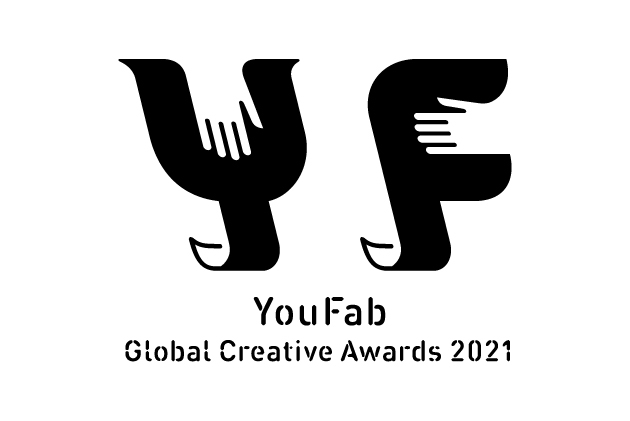-
作品タイトル(日本語)
i-Ihai (アイ位牌)
-
作品タイトル(英語)
i-Ihai (i-buddhist mortuary tablet)
-
制作物のコンセプトを記載してください。
記憶力の劣化や人間関係の希薄化など、テクノロジー依存の反動による様々な負の側面が顕在化してきています。にもかかわらず、製品開発の現場では、より便利で快適な製品やサービスを生み出し続けています。本作品は、現代の人々に、理想的な未来とは何なのか?を考えさせることを狙った、コンセプトデバイスです。
-
制作物のコンセプトを記載してください。(英語)
Various negative aspects due to dependence on technology have become apparent, such as a deterioration of memory and the weakening of human relationships. However, peoples continue to pursue more convenient and comfortable products and services. This speculative design work aims to make people think about what an ideal future would be.
-
作品の素材・仕様
Androidのタブレットを内蔵し、ナイロン素材の3Dプリンターで作成しました。デバイスの寸法は、200mm×20mm×70mmです。
-
作品の素材・仕様(英語)
It has a built-in Android tablet and was created with a 3D printer using nylon material. The dimensions of the device are 200mm x 20mm x 70mm.
-
作品のリファレンスURL
-
作品の映像URL
https://youtu.be/c9messnRZNc
-
公式サイト、もしくはSNSのURL
https://studio.youtube.com/video/EYU9spfLBF0/edit
-
特別賞のテーマにどう作品が関連しているか説明文を記載
- 154
i-Ihai (i-buddhist mortuary tablet)
便利な製品やサービスに囲まれ、現代人はテクノロジーに依存して生活しています。例えば、美味しい料理や美しい景色に出会った時などは、自身の目で楽しむよりも先に、スマートフォンのカメラで撮影しようとします。人々の記憶や思い出は、自身の頭の中ではなく、デバイスの中に記憶されるようになりました。一方、電子化された記憶は、肉体が滅びた後も半永久的に残り続けます。そして近年,それらのデジタル遺品の管理が社会問題になってきています。
Surrounded by convenient products and services, people today rely on technology to live. For example, when we encounter a delicious dish or beautiful scenery, we try to capture it on our smartphone camera before we can enjoy it with our own eyes. People's memories are now stored in own devices, not in their own brains. On the other hand, electronic memories will remain even after the death of the human body. And to sort out electronic memories left by the deceased have become a social problem late years.
i-Ihaiは、電子記憶の保管と活用を目的に考案されたコンセプトデバイスです。故人の電子記憶をAIに取り込むことで、故人の人格とコミュニケーションすることができるようになります。つまり、人間の記憶と人格は電子上で半永久的に生き続けることができます。
“Ihai” is a buddhist object of prayer which the soul of the deceased resides. Then ”i-Ihai" is a concept device designed for the storage and utilization of electronic memories. By incorporating the electronic memories of the deceased into the AI, it will be able to communicate with the personality of the deceased. In other words, people's memories and personality can be continue living in electronic form.
本当にこのような未来が幸せなのか?テクノロジーと人間の関係性を考え直す切っ掛けとなる、スペキュラティブデザインのコンセプトデバイスです。
How do you feel about this kind of future? This is a work of speculative design that fears the excessive pursuit of convenience. Isn't it time for us to rethink the relationship between humans and technology?
Surrounded by convenient products and services, people today rely on technology to live. For example, when we encounter a delicious dish or beautiful scenery, we try to capture it on our smartphone camera before we can enjoy it with our own eyes. People's memories are now stored in own devices, not in their own brains. On the other hand, electronic memories will remain even after the death of the human body. And to sort out electronic memories left by the deceased have become a social problem late years.
i-Ihaiは、電子記憶の保管と活用を目的に考案されたコンセプトデバイスです。故人の電子記憶をAIに取り込むことで、故人の人格とコミュニケーションすることができるようになります。つまり、人間の記憶と人格は電子上で半永久的に生き続けることができます。
“Ihai” is a buddhist object of prayer which the soul of the deceased resides. Then ”i-Ihai" is a concept device designed for the storage and utilization of electronic memories. By incorporating the electronic memories of the deceased into the AI, it will be able to communicate with the personality of the deceased. In other words, people's memories and personality can be continue living in electronic form.
本当にこのような未来が幸せなのか?テクノロジーと人間の関係性を考え直す切っ掛けとなる、スペキュラティブデザインのコンセプトデバイスです。
How do you feel about this kind of future? This is a work of speculative design that fears the excessive pursuit of convenience. Isn't it time for us to rethink the relationship between humans and technology?


